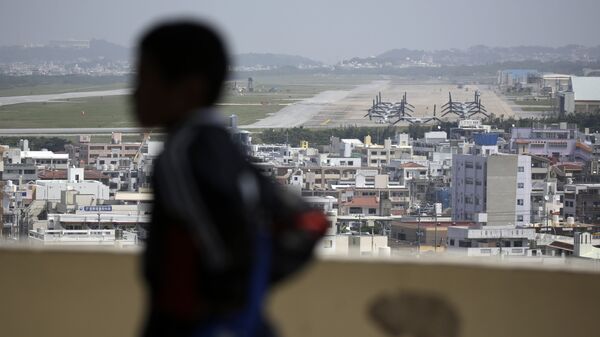Two recent surveys conducted in August 2016 and January of this year have revealed abnormally high concentrations of perfluorooctanesulfonic acid (PFOS) and per-fluorooctanoic acid (PFOA), both used as aircraft lubricants, fire-retardant foam and a water-repellant, in the groundwater underneath the US Marine base in Okinawa. Both were banned in Japan in 2010.
Both chemicals are known cancer-causing agents, and exposure has been shown to result in tumors and increases in the weight of organs and the body overall, and to cause death in animals, according to Stripes.com.
Reported by the local Okinawa environmental protection department's water environments control team, spokesman Yoshinari Mi-yahira affirmed that "High levels of contamination was detected in underground water samples taken from the Oyama and Kiyuna districts."
During the August survey, researchers with the Okinawa water environment control team noted that of the 35 locations monitored, three downstream of the US military base were found to have measurements that exceeded US drinking water health advisory levels.
"The concentration of the substances is notably high in the vicinity of the downstream area of the air station," Miyahira said, according to Stripes.com, indicating that the source of the toxins is the US base.
Requests by Japanese authorities to address the hazard, as well as calls for an investigation, have gone unanswered by the base or the US government.
"We have asked the military through the Ministry of Defense to provide us with information on the history of the use of the agents that contained the substances and an [on-base] survey by the prefectural government, the military and the Ministry of Defense," Miyahira said, cited by Stripes.com.
According to Miyahara, health officials in the region have been stymied. "We received a [Japanese ministry] response that the military handles the agents appropriately and that they see no need to conduct the proposed survey."
Tons of toxic materials on Okinawa were left to rot after the southern Japanese island came into US possession following the end of World War II. More recently, US military veterans serving in the Vietnam War who were exposed to defoliant Agent Orange while stationed on Okinawa have won disability benefits from the Department of Veterans Affairs.





